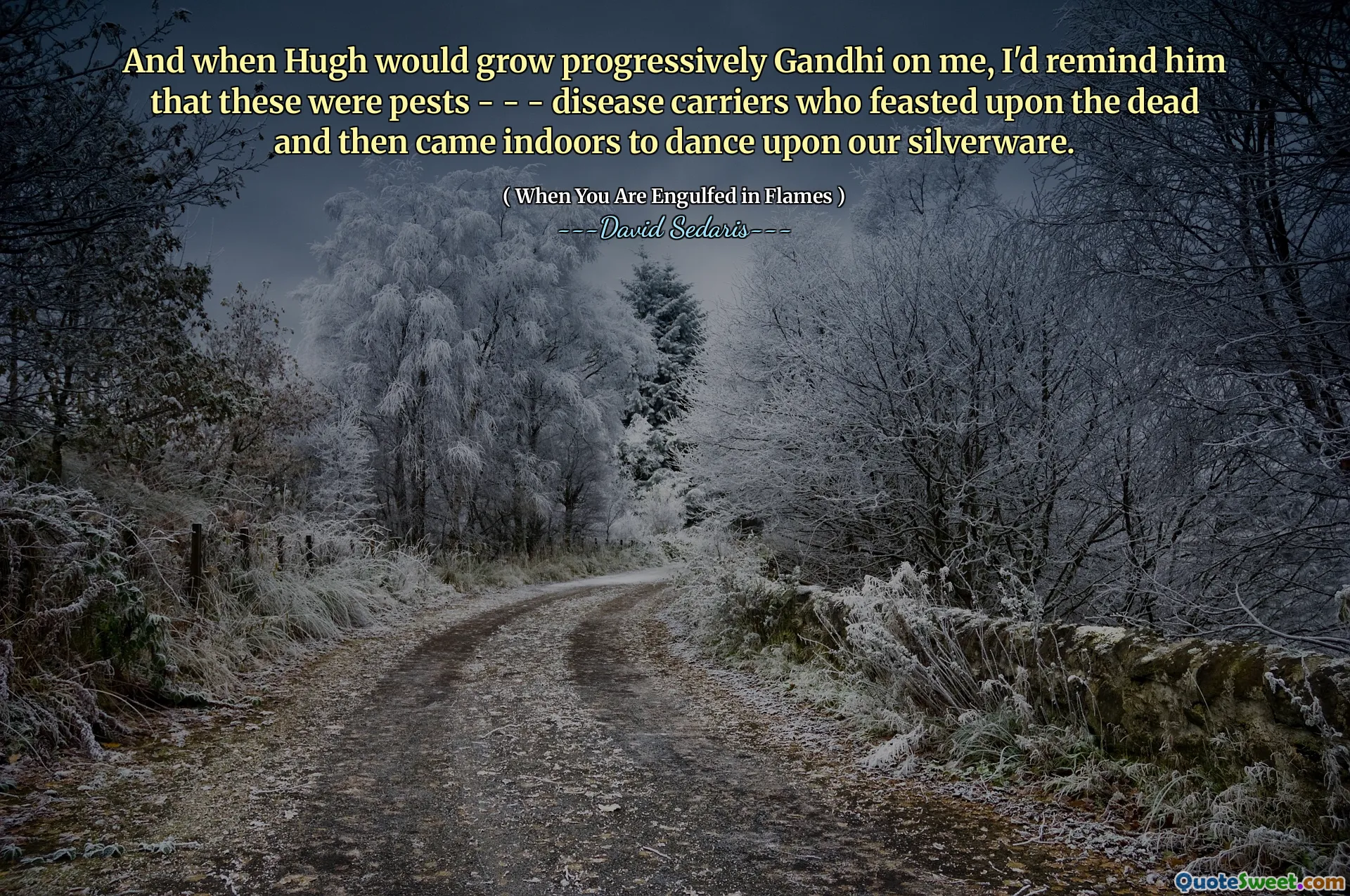
And when Hugh would grow progressively Gandhi on me, I'd remind him that these were pests - - - disease carriers who feasted upon the dead and then came indoors to dance upon our silverware.
This quote from David Sedaris' When You Are Engulfed in Flames brilliantly combines humor with a subtle but pointed commentary on differing attitudes towards tolerance and perception of nuisances. The mention of "Hugh growing progressively Gandhi" quite vividly illustrates the tendency of individuals to adopt a more pacifist or lenient approach—embodied by Gandhi's philosophy of non-violence—in situations where confrontation or action might seem more justified. In this context, however, Sedaris counters that leniency against certain irritants, symbolized here by the “pests” (likely cockroaches), is impractical and overlooks the inherent risk they pose as "disease carriers."
The imagery used—the pests that "feasted upon the dead and then came indoors to dance upon our silverware"—evokes a visceral sense of revulsion, painting a clear picture of why tolerance might be misplaced. It's a humorous yet stark exaggeration that makes the reader reflect on the boundaries of patience and the necessity of practical responses over idealistic softness.
Beyond the literal pests, this quote can be read metaphorically as a critique of excessive idealism in the face of harmful realities, urging a balanced stance that acknowledges when a more pragmatic and protective approach is needed. Sedaris’ dry wit and candid storytelling invite us to laugh, but also to think critically about how and when we apply principles like non-violence and tolerance in everyday life.





